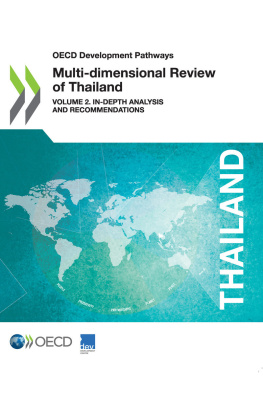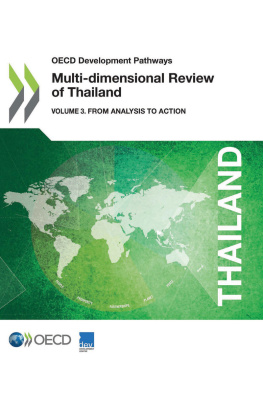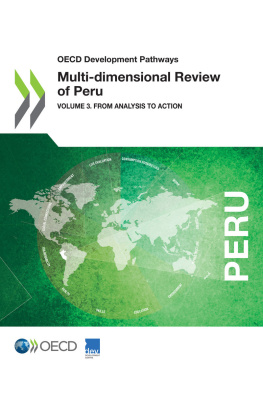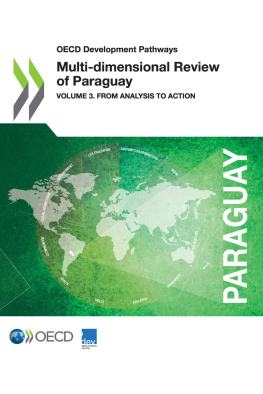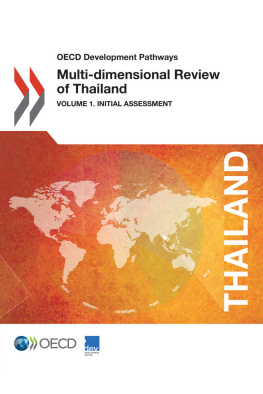OECD - Multi-dimensional Review of Uruguay
Here you can read online OECD - Multi-dimensional Review of Uruguay full text of the book (entire story) in english for free. Download pdf and epub, get meaning, cover and reviews about this ebook. year: 2016, publisher: OECD Publishing, genre: Home and family. Description of the work, (preface) as well as reviews are available. Best literature library LitArk.com created for fans of good reading and offers a wide selection of genres:
Romance novel
Science fiction
Adventure
Detective
Science
History
Home and family
Prose
Art
Politics
Computer
Non-fiction
Religion
Business
Children
Humor
Choose a favorite category and find really read worthwhile books. Enjoy immersion in the world of imagination, feel the emotions of the characters or learn something new for yourself, make an fascinating discovery.

- Book:Multi-dimensional Review of Uruguay
- Author:
- Publisher:OECD Publishing
- Genre:
- Year:2016
- Rating:5 / 5
- Favourites:Add to favourites
- Your mark:
- 100
- 1
- 2
- 3
- 4
- 5
Multi-dimensional Review of Uruguay: summary, description and annotation
We offer to read an annotation, description, summary or preface (depends on what the author of the book "Multi-dimensional Review of Uruguay" wrote himself). If you haven't found the necessary information about the book — write in the comments, we will try to find it.
OECD: author's other books
Who wrote Multi-dimensional Review of Uruguay? Find out the surname, the name of the author of the book and a list of all author's works by series.
Multi-dimensional Review of Uruguay — read online for free the complete book (whole text) full work
Below is the text of the book, divided by pages. System saving the place of the last page read, allows you to conveniently read the book "Multi-dimensional Review of Uruguay" online for free, without having to search again every time where you left off. Put a bookmark, and you can go to the page where you finished reading at any time.
Font size:
Interval:
Bookmark:
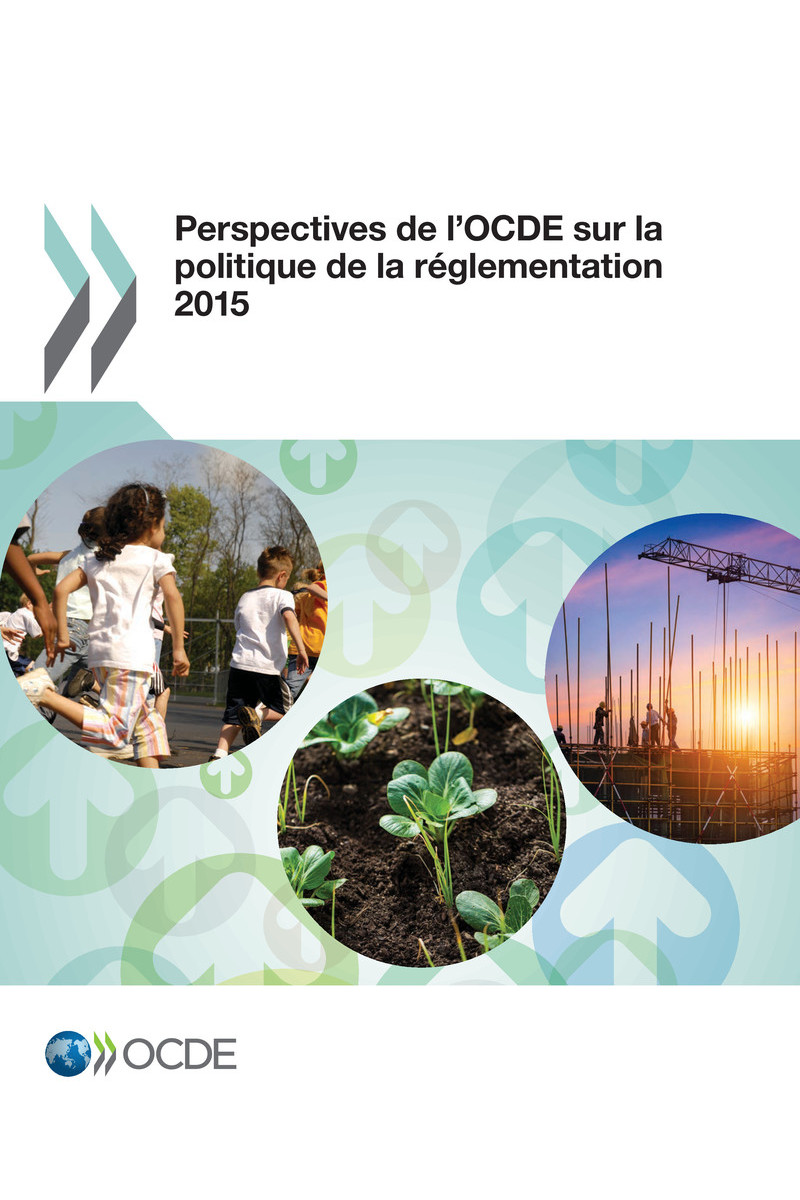
Flicitations et merci davoir tlcharg lun de nos tout nouveaux ePub en version bta.
Nous exprimentons ce nouveau format pour nos publications. En effet, mme si lePub est formidable pour des livres composs de texte linaire, le lecteur peut tre confront quelques dysfonctionnements avec les publications comportant des tableaux et des graphiques tout dpend du type de support de lecture que vous utilisez.
Afin de profiter dune exprience de lecture optimale, nous vous recommandons :
- Dutiliser la dernire version du systme dexploitation de votre support de lecture.
- De lire en orientation portrait.
- De rduire la taille de caractres si les tableaux en grand format sont difficiles lire.
Comme ce format est encore en version bta, nous aimerions recevoir vos impressions et remarques sur votre exprience de lecture, bonne ou autre, pour que nous puissions lamliorer lavenir. Dans votre message, merci de bien vouloir nous indiquer prcisment quel appareil et quel systme dexploitation vous avez utilis ainsi que le titre de la publication concerne. Vous pouvez adresser vos remarques ladresse suivante :
Merci !
Congratulations and thank-you for downloading one of our brand-new ePub-in-beta editions.
We're experimenting with this new format and, while ePub is fantastic for books with linear text, for books with charts, tables and graphs weve found some things may not work perfectly it depends on the device youre using.
So, for an optimal reading experience, we recommend:
- Using the latest version of your devices operating system.
- Reading in portrait mode.
- If large tables are tricky to read, try reducing the text size.
As this is an ePub-in-beta edition, we would be glad to receive feedback on your reading experience, good or otherwise, so we can improve for the future. When writing, please let us know which device/operating system you were using and the title of the publication. Write to:
Thank you!
OECD (2016), Multi-dimensional Review of Uruguay: Volume 2. In-depth Analysis and Recommendations, OECD Development Pathways, OECD Publishing, Paris, http://dx.doi.org/10.1787/9789264251663-en.

Within the framework of the Strategy on Development, the OECD launched the first Multi-dimensional Country Review (MDCR) in 2013, a new series that looks at economic development along the lines of inclusive growth, examining patterns of growth that are equitable, sustainable and improve the overall well-being of citizens. The series aims to identify key constraints to broad-based development, and to formulate appropriate policy recommendations accordingly.
OECD Development Pathways is a new series that looks at multiple development objectives beyond an exclusive focus on growth. The report recognises that well-being is part of development and aims to help countries identify and overcome binding constraints to more equitable and sustainable growth. Governments trying to achieve economic, social and environmental objectives need to understand the constraints they face and to develop comprehensive and well-sequenced strategies for reform. MDCRs take a cross-cutting perspective, which allows for the discussion of policy interactions and trade-offs.
Uruguay is the second country to undertake a multi-dimensional review, and the first one in Latin America. The report is timely as, after a decade of economic prosperity, Uruguay is currently facing new challenges, some of them similar to those of OECD countries. The first volume of the review served to identify the binding constraints to Uruguays development. Several dimensions of the countrys economic and social development, including productivity outcomes, patterns of inequality and macroeconomic policies, were analysed. With this basis, the second volume of the review provides an in-depth analysis and recommendations to tackle Uruguays critical constraints to development. While the recommendations in this report are intended primarily to support public policy action by Uruguays national authorities, the findings are also beneficial for academics, the private sector and civil society.
The MDCRs are composed of three distinct phases: diagnosis, in-depth analysis of the binding constraints, and implementation. This phased approach allows for a progressive learning process about the countrys specific challenges and opportunities. A participatory workshop, two missions and discussions with authorities, private sector representatives and academia allowed for the preparation of the analysis and recommendations within this second report. Analytical work is based on available statistics on Uruguay, including macroeconomic and structural data, household and labour market surveys and other domestic and international sources.
Multi-dimensional Country Reviews are the result of a collaborative effort between the OECD and the country under review. Work on the first phase of the Multi-dimensional Review of Uruguay was carried out jointly by the OECD Development Centre, the OECD Economics Department and the OECD Statistics Directorate, with support from the Ministry of Economy and Finance of Uruguay. The second phase was co-ordinated by the OECD Development Centre, with the participation of the Directorate for Financial and Enterprise Affairs (DAF), the Directorate for Education and Skills (EDU) and the International Transport Forum (ITF).
Font size:
Interval:
Bookmark:
Similar books «Multi-dimensional Review of Uruguay»
Look at similar books to Multi-dimensional Review of Uruguay. We have selected literature similar in name and meaning in the hope of providing readers with more options to find new, interesting, not yet read works.
Discussion, reviews of the book Multi-dimensional Review of Uruguay and just readers' own opinions. Leave your comments, write what you think about the work, its meaning or the main characters. Specify what exactly you liked and what you didn't like, and why you think so.








